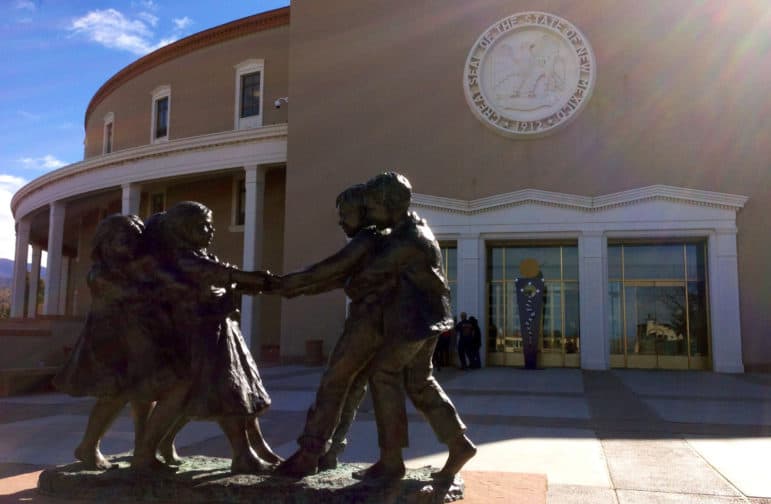
Heath Haussamen / NMPolitics.net
It doesn’t matter whether we call the driving option for people who don’t prove citizenship or legal status a license or a privilege card, Heath Haussamen writes. Let’s move on to more substantive issues.
COMMENTARY: Most policymakers in Santa Fe have, in principle, agreed to compromise on adopting a two-tier system for licensing people to drive in New Mexico. That would give most New Mexicans licenses that comply with the federal REAL ID Act while still providing a way for those who don’t prove citizenship or legal status a way to continue driving on our roads legally.
But until this week, Democrats and Republicans continued battling over semantics. Most notably, would we call the second-tier option, which isn’t REAL ID compliant and would be for people who don’t prove legal status, a driver’s license or a driving privilege card?

Heath Haussamen
The difference? There isn’t one. What’s matters are the details: Who is eligible for the second-tier option? What qualifications would they have to meet? What we call the card they’re issued by the state’s Motor Vehicle Division is irrelevant.
Except, perhaps, for political reasons. Gov. Susana Martinez pledged for years to repeal the law that allows immigrants without legal status to obtain driver’s licenses. Now she’s given up that fight, and she should get credit for compromising. But she has continued to insist on calling the second-tier option a driving card instead of a license.
I assume that’s because she wants to be able to say she succeeded in taking licenses from people without legal status. Martinez may get away with that spin. I’ve complained before about how successful her people are at making their propaganda the air we breathe.
Rhetoric aside, the truth is that Martinez is agreeing to let immigrants without legal status drive on New Mexico roads legally — which is what she had promised for years to stop.
Her willingness to compromise is positive. Coming up with a two-tier licensure system was the only real way forward.
If a Tuesday Senate committee meeting is any indication, Democrats have dropped the battle over semantics. By approving an amended version of House Bill 99, sponsored by Rep. Paul Pacheco, R-Albuquerque, Senate Democrats “seem to have given in” on this point, The Santa Fe New Mexican reported.
As amended, the legislation now calls the second-tier option a “driving authorization card.”
Fine. That was a meaningless fight that distracted from important issues. Among the substantive questions still being debated: Would people have to renew driving cards annually or every two years? Would they have to be fingerprinted to get a driving card?
I’m glad to see Senate Democrats focusing on serious points instead of the political battle. I hope the governor does too.
Because there are other important issues that haven’t gotten as much attention from policymakers. For example, Pacheco’s bill would require people who apply for a driving card to prove that they’ve lived in New Mexico for two years or filed a state tax return in the prior year.
That is a much stricter requirement than it takes to get a driving card in Utah — whose system New Mexico Republicans are comparing with Pacheco’s bill. It’s fair to question whether the requirements in Pacheco’s bill are so strict that they could result in immigrants who currently have licenses losing their ability to drive legally in New Mexico.
The requirement that people prove two years of New Mexico residency or that they filed tax returns in the state the prior year would also discourage new immigrants without legal status from coming to New Mexico. They could go to some other states and become licensed to drive immediately, whereas here they’d have to spend 1-2 years getting around without legal authorization to drive.
And immigrants without legal status aren’t the only people who want driving cards instead of REAL ID compliant licenses. Some oppose giving the government as much personal information as REAL ID requires, or they just have no need to go through the hassle. In Vermont, 40,000 people got privilege cards in 2014 and 2015 — much more than the state’s “estimated 1,500 migrant population the cards were designed to serve,” according to the news organization VTDigger.org.
American citizens and legal residents who are considering moving to New Mexico but don’t want REAL ID cards might be discouraged if they have to live here long enough to file state tax returns before they can get driving cards.
These issues are getting little attention. They deserve much more scrutiny than whether we call it a driver’s license or a driving card.